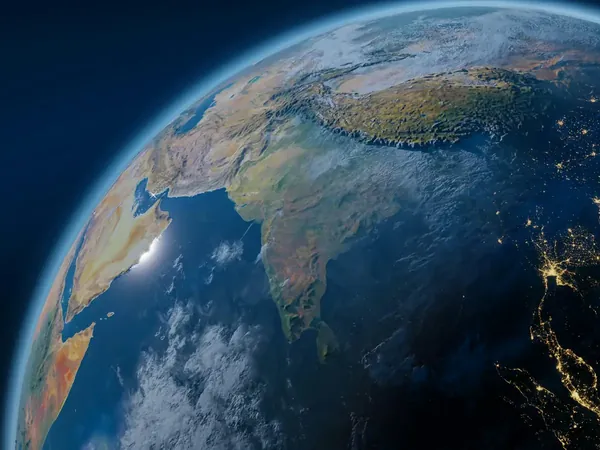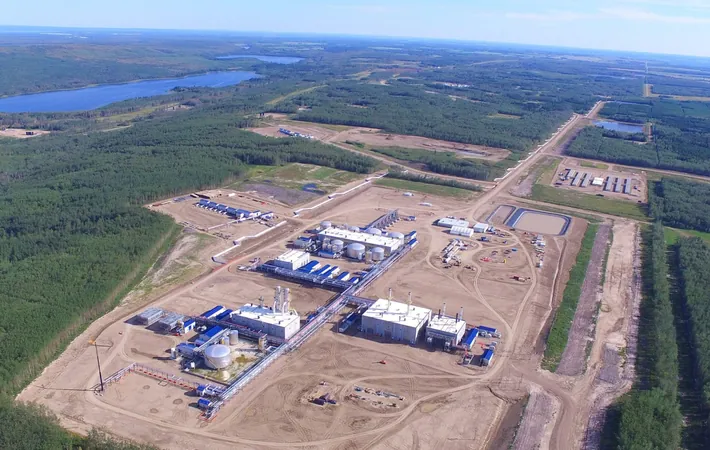
How a Tiny Slowing of Earth's Spin is Boosting Our Oxygen Supply
2025-09-04
Author: Benjamin
A Day's Evolution: From 18 Hours to 24
Imagine a time when a full day on Earth lasted only 18 hours! This staggering fact stems from our planet's gradual slowdown, influenced by the Moon's gravitational pull, which means today, we bask in 24-hour days. But this seemingly insignificant change—just 2 milliseconds per century—has monumental implications for life as we know it.
Cyanobacteria: The Original Oxygen Makers
Around 2.4 billion years ago, the ancient microorganisms known as cyanobacteria revolutionized our atmosphere by converting sunlight into oxygen through photosynthesis. This pivotal moment, termed the Great Oxidation Event, ballooned Earth’s oxygen levels, making way for complex life forms.
Longer Days, More Oxygen: The Science Behind It
Cyanobacteria thrive under sunlight, and the longer days we experience now allow these organisms to perform photosynthesis more efficiently. When Earth’s rotation slowed, these microbes enjoyed extended periods of sunlight, enabling them to boost their oxygen production.
New Findings from Lake Huron
Recent research conducted on microbial mats in Lake Huron’s Middle Island Sinkhole reveals how oxygen-producing cyanobacteria engage in a fierce competition against sulphur-eating microbes. The outcome? Extended sunlight hours lead to more oxygen output, while shorter days hinder this vital process due to inefficient diffusion rates.
The Cascade Effect of Longer Days
The release of oxygen isn’t instantaneous; it relies on molecular diffusion, which unfolds gradually. Multiple short days don’t equate to the oxygen yield of a single long day. The sustained daylight cycles now support a more consistent release of oxygen into the water surrounding these microorganisms.
A Cosmic Connection to Our Oxygen-Rich Air
The slow but sure increase in day length likely played a crucial role in a second oxygen rise during the Neoproterozoic era, roughly 550 to 800 million years ago. This uptick in oxygen supported the emergence of multicellular life, leading to an explosion of complexity and diversity.
So, the next time you take a deep breath of fresh air, remember this: even the tiniest adjustments in Earth’s rotational speed have monumental impacts. A mere millisecond per century has contributed to the oxygen-rich atmosphere we enjoy today, a testament to the profound intricacies of life on our planet.









 Brasil (PT)
Brasil (PT)
 Canada (EN)
Canada (EN)
 Chile (ES)
Chile (ES)
 Česko (CS)
Česko (CS)
 대한민국 (KO)
대한민국 (KO)
 España (ES)
España (ES)
 France (FR)
France (FR)
 Hong Kong (EN)
Hong Kong (EN)
 Italia (IT)
Italia (IT)
 日本 (JA)
日本 (JA)
 Magyarország (HU)
Magyarország (HU)
 Norge (NO)
Norge (NO)
 Polska (PL)
Polska (PL)
 Schweiz (DE)
Schweiz (DE)
 Singapore (EN)
Singapore (EN)
 Sverige (SV)
Sverige (SV)
 Suomi (FI)
Suomi (FI)
 Türkiye (TR)
Türkiye (TR)
 الإمارات العربية المتحدة (AR)
الإمارات العربية المتحدة (AR)